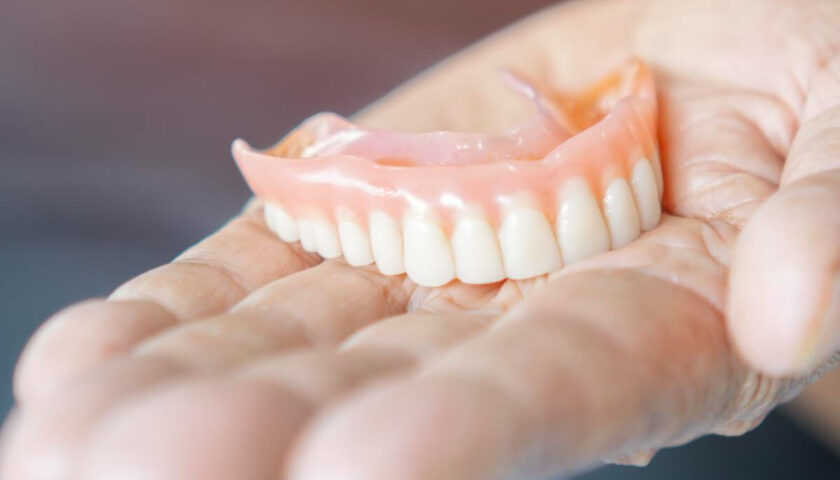Introduction
Erectile dysfunction (ED) is a common condition that affects many men. It can have a significant impact on their quality of life and intimate relationships. While there are various treatment options available, such as medications and therapy, lifestyle changes like diet and exercise can also play a crucial role in improving erectile function. In this article, we will explore the connection between diet, exercise, and erectile function, and discuss how making healthy choices in these areas can potentially help improve sexual health.

The Link Between Diet and Erectile Function
The Role of Nutrition in Sexual Health
A healthy diet that includes a variety of nutrient-dense foods is essential for overall well-being, including sexual health. Certain nutrients, such as antioxidants, vitamins, and minerals, play a vital role in maintaining proper blood flow, hormone production, and nerve function – all of which are crucial for erectile function.
Foods That Promote Erectile Function
Some foods have been associated with improved erectile function and sexual health. These include:
- Leafy greens: Spinach, kale, and other leafy greens are rich in nitrates, which help relax blood vessels and improve blood flow. They also contain folate, which supports healthy blood circulation.
- Berries: Berries, such as strawberries, blueberries, and raspberries, are packed with antioxidants that can protect blood vessels and enhance blood flow.
- Fish: Fatty fish, like salmon and mackerel, are high in omega-3 fatty acids, which have been shown to improve cardiovascular health. This can indirectly contribute to better erectile function by promoting healthy blood flow.
- Nuts: Nuts, such as almonds, walnuts, and pistachios, are a good source of arginine, an amino acid that helps relax blood vessels and improve blood flow.
- Watermelon: Watermelon contains an amino acid called citrulline, which can help relax blood vessels and improve blood flow. It is also a hydrating fruit that can support overall cardiovascular health.
Foods to Limit or Avoid
Just as certain foods can promote erectile function, others can have a negative impact. It is important to limit or avoid the following:
- Processed foods: Processed foods that are high in trans fats, added sugars, and refined carbohydrates can contribute to obesity, diabetes, and cardiovascular problems – all of which can increase the risk of erectile dysfunction.
- Sugary drinks: Beverages like soda and energy drinks that are loaded with sugar can negatively affect blood sugar levels and contribute to weight gain and metabolic issues, which can impact erectile function.
- Alcohol: Excessive alcohol consumption can impede sexual function by interfering with hormone production, affecting blood flow, and causing nerve damage.

The Role of Exercise in Erectile Function
Benefits of Regular Physical Activity
Regular exercise has numerous benefits for overall health, and it can also have a positive impact on erectile function. Here are some ways exercise can contribute to better sexual health:
- Improved cardiovascular health: Exercise helps strengthen the heart, improve blood circulation, and reduce the risk of cardiovascular diseases. This can enhance blood flow to the genital area and improve erectile function.
- Weight management: Regular physical activity can help maintain a healthy weight or facilitate weight loss. Obesity is a risk factor for erectile dysfunction, so managing weight through exercise can potentially improve sexual health.
- Hormone regulation: Exercise can help regulate hormone levels, including testosterone, which plays a crucial role in sexual function.
Types of Exercise That Can Benefit Erectile Function
Various types of exercise can be beneficial for erectile function. These include:
- Aerobic exercise: Activities like brisk walking, jogging, cycling, and swimming can improve cardiovascular health and promote better blood flow, thus supporting erectile function.
- Strength training: Resistance exercises, such as weightlifting, can help increase testosterone levels, improve muscle strength, and enhance overall physical fitness, all of which can positively impact sexual health.
- Pelvic floor exercises: Pelvic floor exercises, also known as Kegels, can help strengthen the muscles involved in erections and improve erectile function.
Causes of Erectile Dysfunction
- Physical Factors:
- Cardiovascular Issues: Conditions like hypertension, atherosclerosis (narrowing of arteries), and heart disease can impede blood flow to the penis, leading to ED.
- Diabetes: High blood sugar levels can damage blood vessels and nerves, affecting the ability to achieve and maintain an erection.
- Neurological Conditions: Conditions such as multiple sclerosis, Parkinson’s disease, and stroke can interfere with the nerve signals responsible for erections.
- Hormonal Imbalances: An imbalance in hormone levels, particularly testosterone, can contribute to ED.
- Peyronie’s Disease: This condition involves the development of scar tissue in the penis, causing curvature and potential difficulty in achieving or maintaining an erection.
- Psychological Factors:
- Stress and Anxiety: High-stress levels and anxiety can lead to performance anxiety, making it challenging to achieve an erection.
- Depression: This condition can lead to a reduced interest in sexual activity and hinder the physiological processes necessary for an erection.
- Relationship Issues: Conflicts, communication problems, or emotional distance within a relationship can contribute to ED.
- Lifestyle Choices:
- Smoking and Alcohol: Both excessive smoking and alcohol consumption can lead to ED by affecting blood flow and overall health.
- Obesity: Being overweight or obese can lead to various health issues, including ED.
- Lack of Exercise: Sedentary lifestyles can contribute to obesity and cardiovascular problems, which are linked to ED.
Symptoms of Erectile Dysfunction
The primary symptom of ED is the consistent inability to achieve or sustain an erection. However, it’s important to note that occasional difficulty in achieving an erection is normal and does not necessarily indicate ED. If the problem persists over an extended period, it’s advisable to seek medical attention.
Treatment Options for Erectile Dysfunction
- Lifestyle Changes:
- Diet and Exercise: Adopting a balanced diet and engaging in regular physical activity can improve overall health, addressing many underlying causes of ED.
- Smoking and Alcohol: Quitting smoking and moderating alcohol consumption can have a positive impact on erectile function.
- Psychological Interventions:
- Therapy and Counseling: For cases where stress, anxiety, or depression are significant factors, therapy can be highly effective in addressing the psychological aspects of ED.
- Couples Therapy: In cases where relationship issues contribute to ED, counseling for both partners can be beneficial.
- Medications:
- Phosphodiesterase Type 5 (PDE5) Inhibitors: Drugs like Viagra, Cialis, and Levitra enhance the effects of nitric oxide, a chemical that relaxes smooth muscles in the penis, allowing for increased blood flow and improved erections.
- Alprostadil: This medication is available as an injection or suppository and works by dilating blood vessels in the penis, promoting blood flow.
- Vacuum Erection Devices (VEDs):
- These are mechanical devices that create a vacuum around the penis, drawing blood into the area to produce an erection.
- Surgery:
- In severe cases, surgical options like penile implants or vascular surgery may be considered.
Conclusion
While diet and exercise alone may not completely reverse erectile dysfunction, they can certainly contribute to improved sexual health. A healthy diet rich in nutrient-dense foods and low in processed and sugary items can promote proper blood flow and support overall cardiovascular health. Regular exercise, particularly aerobic and strength training activities, can enhance cardiovascular function, regulate hormone levels, and manage weight – all of which can positively impact erectile function.
It is important to note that individual results may vary, and it is always advisable to consult with a healthcare professional for personalized advice and treatment options. Nonetheless, making healthy choices in terms of diet and exercise can be a proactive step towards improving erectile function and overall sexual well-being.




